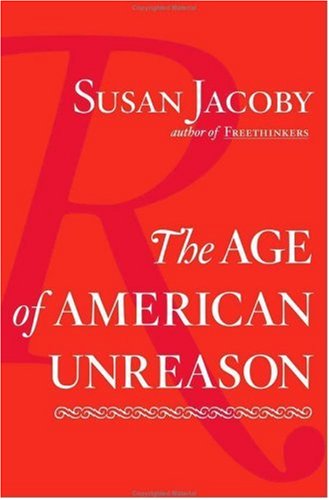
Memes
 Newspapers, Unlike New Media, Can be Put Down
Newspapers, Unlike New Media, Can be Put Down
The intellectual shortcomings of past and present newspapers are, however, beside the point, because the real difference between today's video and yesterday's print is not content but context--a context in which the proliferating visual images and noises of the video/digital age permeate the minute-by-minute experience of our lives. Newspaper reading was a habit that accompanied the beginning or ending of each workday for millions; it did not constitute a continuous invasion of individual tho...New media intrudes on us perpetually, with RSS feeds, television streaming, and music blaring. Newspapers and books are picked up in compartmentalized time, making them less intrusive and allowing us deeper engagement with them.
 Richard Dawkins Confuses Moderate and Fundamental Religio...
Richard Dawkins Confuses Moderate and Fundamental Religio...
While Dawkins is clearly right in his contention that religion -- any religion -- should be fair game for critics, his brand of purist atheism is grounded more in philosophy than in a cleare-eyeed look at the real world or the way religion works in American society. The difference between moderate religion and fundamentalism, now as in the past, is that moderate faith attempts to accommodate itself to secular education and ecular government: the American religious right rejects both. If there...The difference between them is that one group is willing to concede things about their religious doctrine, while the other is unyielding in its irrationality.
 Intellectual Quackery in Academia
Intellectual Quackery in Academia
Intellectual quackery extends throughout the landscape of academia; tenured professors in the humanities and social sciences, on the right and left, are constantly purveying theories that are the philosophical, literary, and artistic equivalents of junk science. That many of the researchers consider themselves intellectuals is sad but unremarkable in the annals of quackery withing academia: junk thought with an intellectual patina fosters anti-intellectualism as effectively as junk science wi...This is the worst form of junk-thought, because it comes from a source the public considers reliable, the Colleges and Universities.
 Characteristics of Junk Science
Characteristics of Junk Science
The inseparability of junk science from junk thought is evinced by the telltale marks of endemic illogic coupled, in many instances, with deliberate manipulativeness. The first and most fundamental warning sign is an inability to distinguish between coincidence and causation—a basic requirement for scientific literacy… A second telltale sign of junk thought is the appropriation of scientific-sounding language without underlying scientific evidence or logic… A third important element in ...Jacoby outlines four characteristics or human flaws that allow for the propagation of junk science.
 Middlebrow Culture of Effort
Middlebrow Culture of Effort
The distinctive feature of American middlebrow culture was its embodiment of the old civic credo that anyone willing to invest time and energy in self-education might better himself. Many uneducated lowbrows, particularly immigrants, cherished middlebrow values: the millions of sets of encyclopedias sold door to door from the twenties through the fifties were often purchased on the installment plan by parents who had never owned a book but were willing to sacrifice to provide their children w...The post-WWII people who bought encyclopedias and literature were trying to better themselves and believed in self-improvement through self-education. When that culture was lost in favor of pop-culture, America lost its middle-class intellectualism.
 The Secularizing Power of Education
The Secularizing Power of Education
Regardless of how fundamentalists fine-tune their beliefs, there is unquestionably a powerful correlation between religious fundamentalism and a lack of education. Approximately 45 percent of those who have no education beyond high school believe in the literal truth of the Bible, while only 29 percent with some college—and just 19 percent of college graduates—share that old-time faith. Secularism, skepticism, and acceptance of mainstream science all rise with education; two thirds of col...The more educated people are, the less prone they are to fundamentalist religious beliefs.




